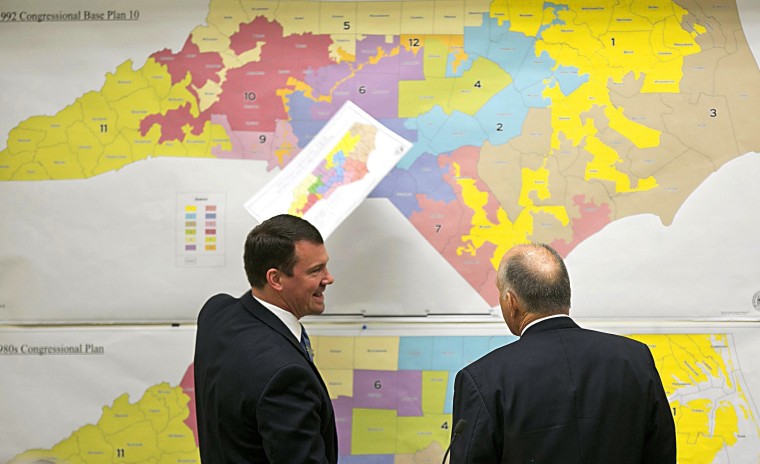WASHINGTON — The U.S. Supreme Court said Monday it will not take up a fight over the boundaries for congressional districts in North Carolina that challengers say were drawn in such a blatantly partisan manner that the resulting map is unconstitutional.
The justices threw out a lower court victory for the challengers and sent the case back, a week after rejecting two other claims of partisan gerrymandering, from Wisconsin and Maryland. The court's action means the issue of how much partisanship is too much won't be decided anytime soon.
Common Cause, the League of Women Voters and other groups challenged the maps for North Carolina's 1st and 12th Districts as "nakedly partisan," designed to give Republicans 10 of the state's 13 districts in the U.S. House of Representatives. They noted that one of the state legislators involved in process said, "I acknowledge freely that this would be a political gerrymander."
As a result, Republicans won their 10 seats, even though the statewide vote was nearly tied. The challengers called it the largest partisan imbalance of any congressional map in the nation and said it would lock in a Republican advantage for years to come. A federal district court agreed, ruling in January that it will "entrench Republican candidates in power."
But state legislators involved in drafting the map said the lower court's standard was so vague for evaluating whether too much partisanship was involved that it would "remove political considerations from the districting process entirely."
They also said the lower court's ruling should be thrown out, because the groups that brought the lawsuit mounted a statewide challenge, instead of limiting their case to one involving only voters who lived in the contested districts.
In declining to declare Wisconsin's redrawn legislative boundaries, the Supreme Court cast doubt on whether voters could successfully challenge redistricting statewide.

